Why KCET Physics Can Be a Game-Changer
Physics in KCET is often considered challenging due to its conceptual nature and application-based questions. However, it’s also one of the most scoring subjects if you approach it with discipline and a well-structured plan. Scoring above 100 in Physics is not just possible—it’s achievable, even without coaching, when backed by the right resources and strategies.
KCET Physics can significantly boost your overall rank. Students who consistently perform well in Physics often outperform their peers in overall rankings due to the relative difficulty of the paper. While other subjects might rely on memorization, Physics demands logical thinking, analytical application, and an ability to recall formulas quickly under time pressure.
At Deeksha Vedantu, we’ve mentored numerous students who have self-prepared using NCERT and practice workbooks. Our success stories prove that with focused effort and proper guidance, even students who choose to go without coaching can achieve excellent results. Here’s how you can replicate that success.
Key Benefits of a Self-Study Approach
- Saves time and commuting hassles, offering more flexibility in scheduling
- Allows you to tailor the pace of learning to your strengths and weaknesses
- Helps develop independent problem-solving skills, which are invaluable in exams and beyond
- Encourages focused and deeper understanding of topics, rather than passive note-taking
- Builds strong self-discipline and time management habits that benefit other subjects too
Structured Plan to Score 100+ in Physics
1. Master the Syllabus and KCET Weightage
Begin with a detailed breakdown of the KCET Physics syllabus. Understand which chapters carry the most weight and which areas overlap with your board curriculum. Focus more on high-weightage chapters like:
- Electrostatics
- Current Electricity
- Magnetism
- Oscillations and Waves
- Ray and Wave Optics
- Thermodynamics
- Motion and Laws of Motion
- Gravitation
- Work, Power and Energy
Create a topic-wise checklist to track progress and focus.
2. Build a Strong Conceptual Foundation
Stick to NCERT textbooks—these are your primary resource. Many KCET questions are directly lifted or closely framed from NCERT content. Read each chapter line by line. Don’t skip over solved examples; they are often structured to reflect exam-level complexity.
Use visual memory aids like:
- Flowcharts for derivations and conceptual relations
- Diagrams for circuits, optical setups, and force diagrams
- Summary boxes for key formulae and laws
- Concept maps that link similar topics (e.g., Newton’s Laws with Circular Motion)
3. Create a Weekly Study Plan
Structure your week around specific objectives. Divide your week as:
- 3 days for new concept learning (including theory + examples)
- 2 days for practice problems and problem sets
- 1 day for mock test and full-length topic-wise revision
- 1 day for error analysis and review of weak areas
Keep your plan dynamic. After every two weeks, analyze your performance and reallocate time based on subjects you struggle with.
4. Practice with Purpose
Solving questions is not enough; solving the right questions is key. Structure your practice sessions:
- Easy level (30%) – to warm up and recall theory
- Moderate level (40%) – to build consistency
- Advanced level (30%) – to handle exam-level complexity
Sources to use:
- NCERT textbook and exemplar problems
- Deeksha Vedantu Physics MCQ booklets
- Past 5 years’ KCET question papers
- Online quizzes and mock portals with instant feedback
Track your performance using a simple Excel sheet or notebook log.
5. Solve with a Timer
Time-bound practice is essential. KCET allows roughly 80 minutes for 60 Physics questions. This means:
- You get ~1.3 minutes per question
- You need accuracy and speed
Simulate this in your study plan:
- Solve 20 MCQs in 20 minutes (target phase 1)
- 40 MCQs in 30 minutes (target phase 2)
- 20 final questions in 30 minutes (revision buffer)
Use a stopwatch to track pace. Gradually aim to reduce solving time while maintaining accuracy.
6. Maintain a Formula Booklet
Physics is formula-dense. From kinematics to optics to electrostatics, nearly every question relies on formula application. Maintain a dedicated A5 notebook to jot down:
- All key formulas with units
- Graphs and their interpretations
- Short tricks, ratios, and proportionality constants
- Mnemonics and quick conversion tips
Revise this notebook daily, especially in the last 4 weeks before the exam.
7. Use Visual & Conceptual Resources
Self-studying doesn’t mean you have to do it all alone. Use digital learning tools:
- Deeksha Vedantu’s YouTube tutorials and doubt-solving sessions
- Concept animations for electric circuits, lenses, and waves
- Virtual lab simulations for key experiments
- Physics infographic charts for wall revision
Use sticky notes or flashcards to label diagrams around your study area. The more you visually interact with Physics, the more natural the subject becomes.
8. Self-Evaluate Consistently
Mock tests are only useful if followed by analysis. After each test:
- Log every incorrect answer in a dedicated notebook
- Categorize errors (silly mistake, conceptual, calculation, time management)
- Solve 5 additional questions from the same concept
- Make mini-flashcards for error-prone formulas
Try to improve at least one metric (accuracy, time, or confidence) after each test.
Avoid These Common Self-Study Mistakes
- Ignoring NCERT content in favor of multiple guides
- Avoiding diagrams and visual aids
- Over-relying on theory without solving numericals
- Not practicing under time pressure
- Delaying mock test practice until the last month
- Not revising your errors or formulas periodically
Deeksha Vedantu’s Proven Self-Study Toolkit
Deeksha Vedantu understands the challenges self-learners face. That’s why we’ve created tools that support you every step of the way:
- Free downloadable Physics MCQ sets with solutions
- Chapter-wise flashcards for last-minute revision
- Weekly challenge tests with rank comparison
- Concept-wise video explanations from Deeksha Vedantu mentors
- Smart doubt-clearing tools for self-paced learners
Whether you study alone or in a group, our materials replicate the structure and discipline of classroom coaching without the pressure.
FAQs
1. Is NCERT enough for KCET Physics?
Yes, absolutely. Most KCET Physics questions are either directly from NCERT or adapted with small variations. However, supplement with MCQs for application.
2. How many mock tests should I take before the exam?
Take at least 10–12 full-length mock tests. Start with one per week and increase to 2–3 during the final 4 weeks.
3. How should I revise Physics formulas quickly?
Use a formula notebook and revise daily. Stick flashcards on walls or doors and revise passively.
4. What’s the ideal number of questions to solve per day?
Start with 40–60 MCQs per day. Increase to 80–100 per day in the last month as you build speed and stamina.
5. Can I crack 100+ in KCET Physics without any coaching?
Definitely. Many Deeksha Vedantu students have done it using NCERT, self-practice, and structured revision. Discipline and consistency matter more than coaching.
Conclusion
Scoring 100+ in KCET Physics without coaching isn’t just a dream—it’s a realistic goal with the right mindset and resources. The secret lies in strategic preparation, smart practice, and daily accountability. Stick to a weekly plan, revise consistently, and don’t skip your mocks.
Deeksha Vedantu’s self-study tools are designed to walk with you through this journey, giving you the confidence and clarity to succeed. Focus on improvement, not perfection. Every hour you invest brings you one step closer to your goal.
Let your preparation speak louder than your pressure. With every solved question and every revised formula, you’re building the momentum needed to ace KCET Physics—and cross that 100+ mark with pride.
Table of Contents


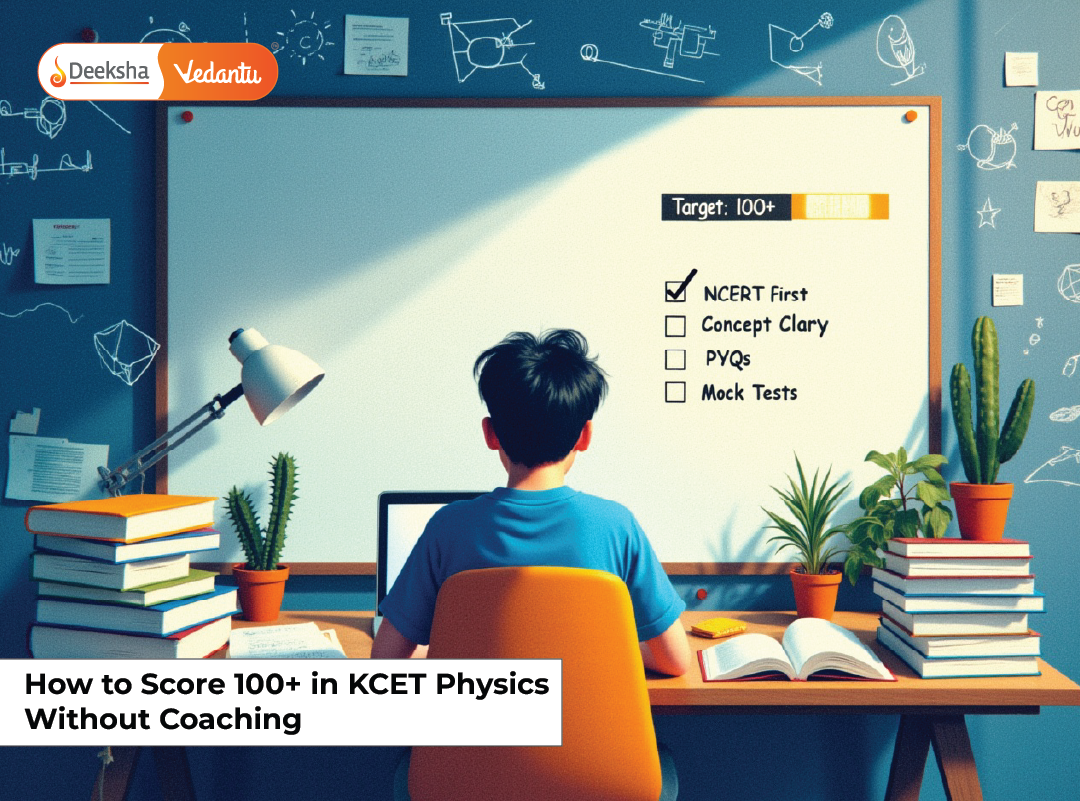


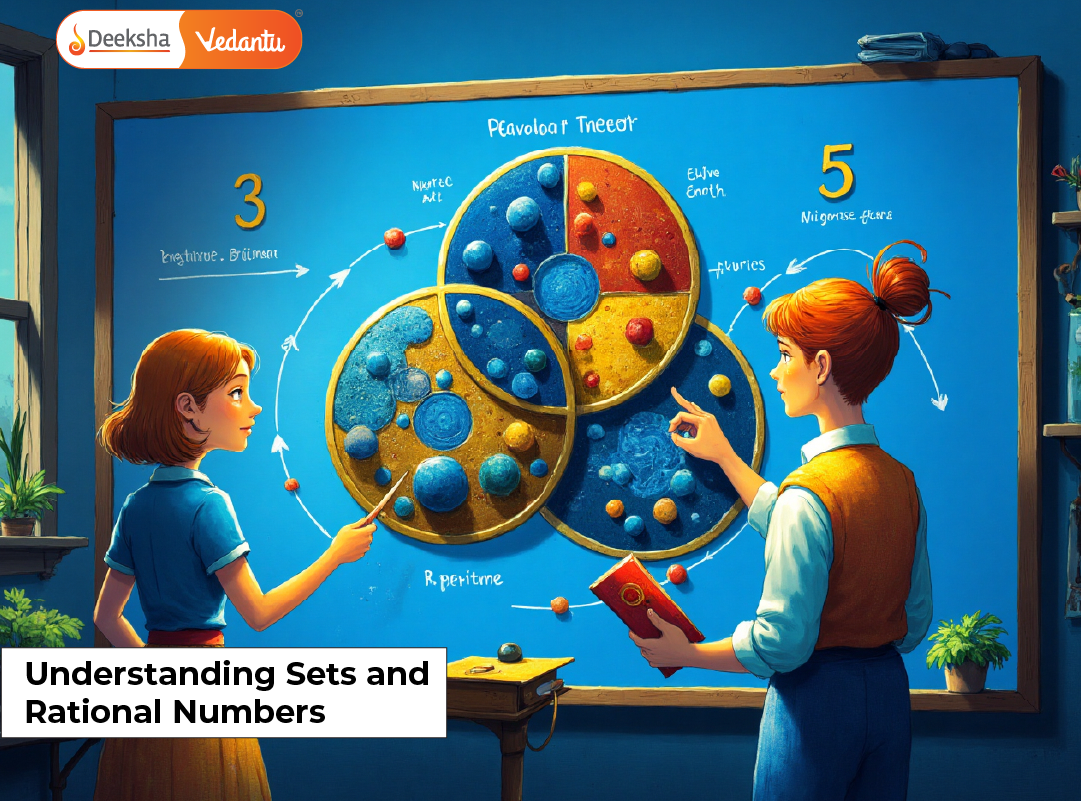

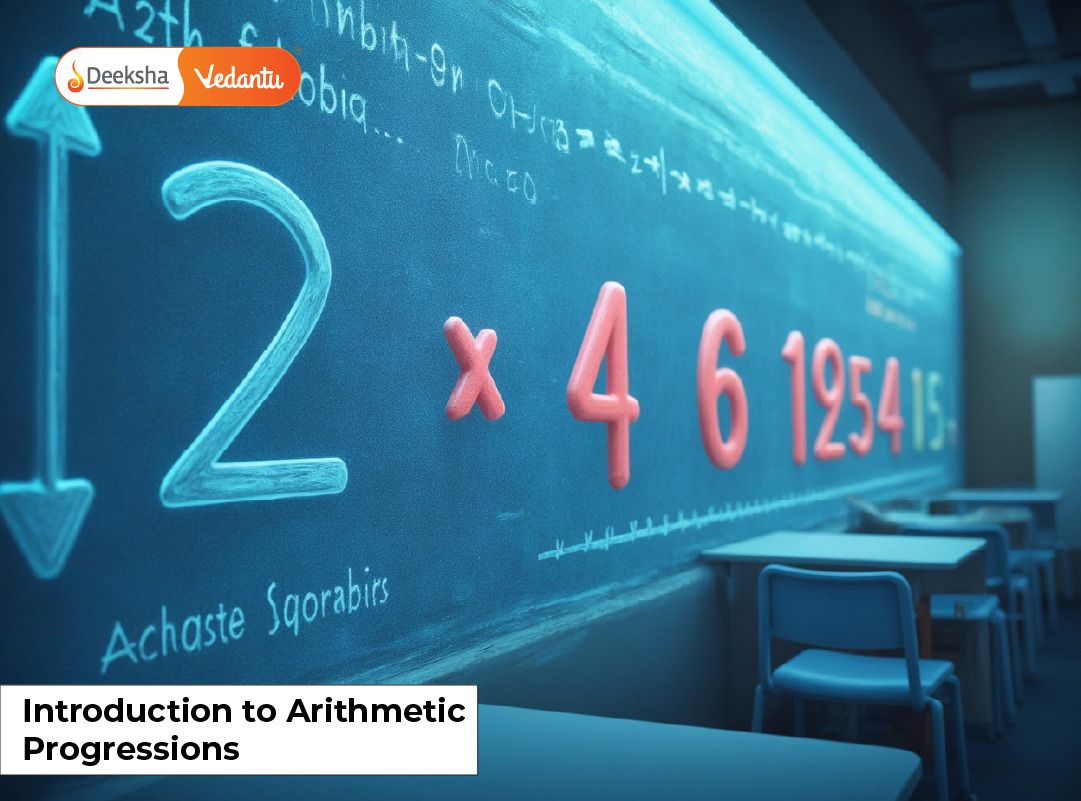
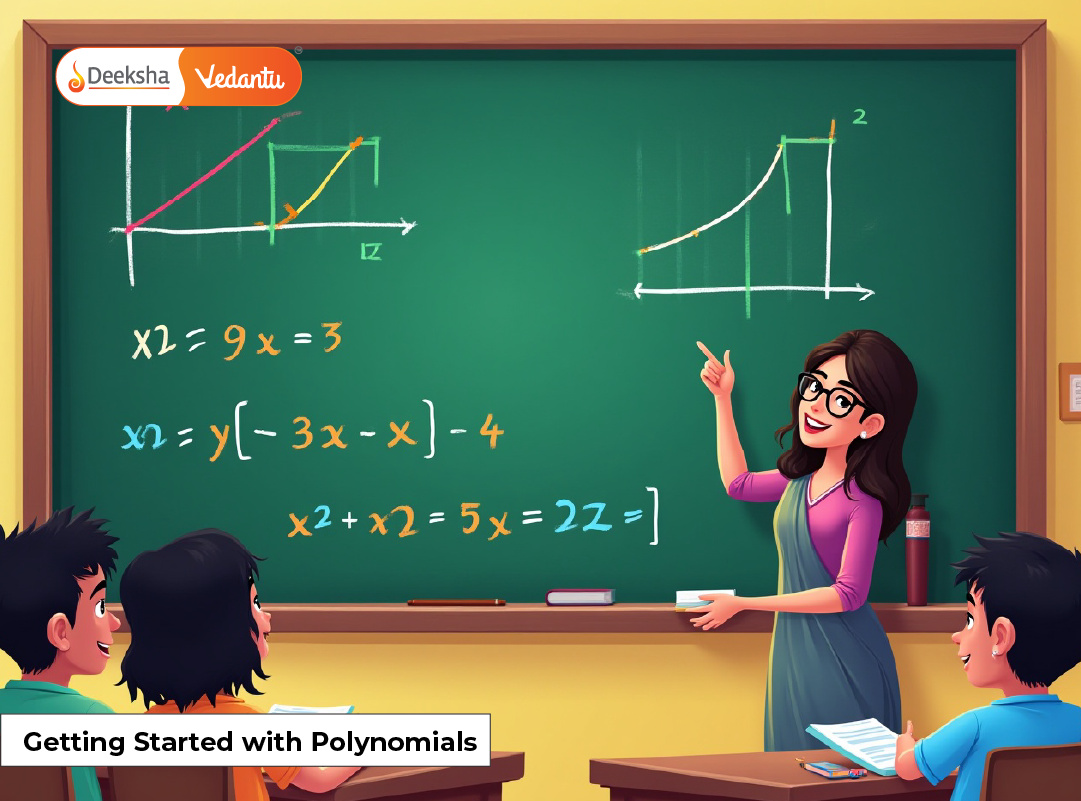

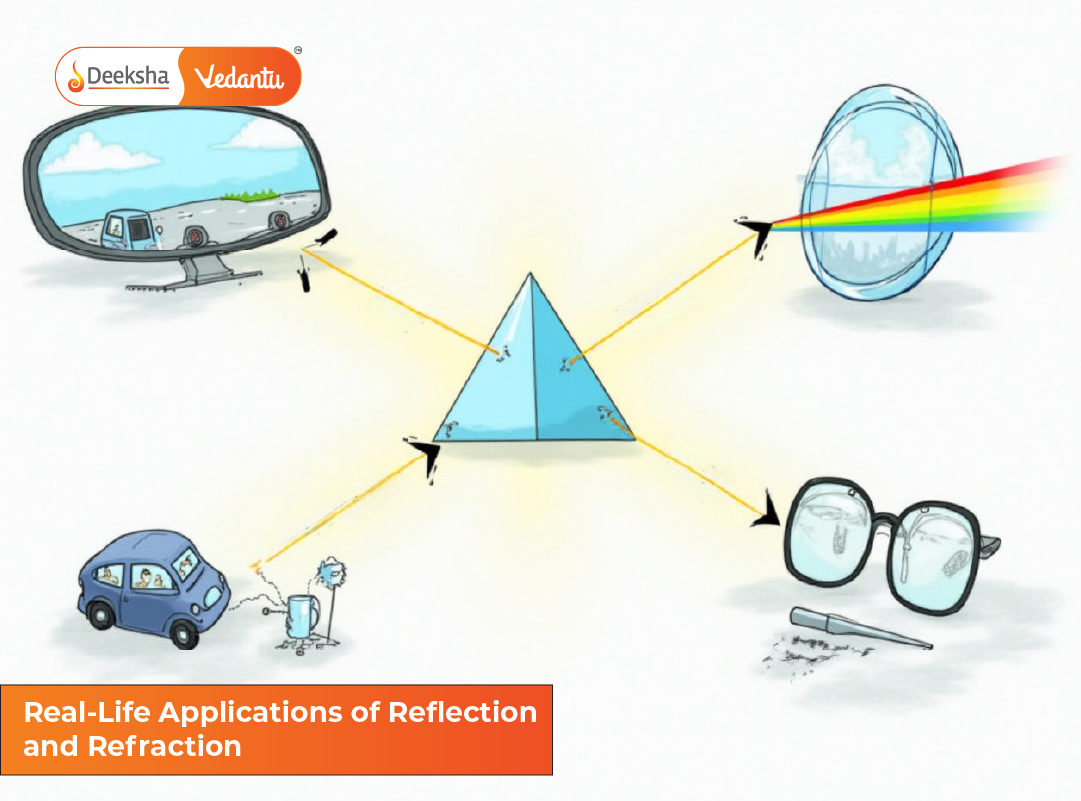
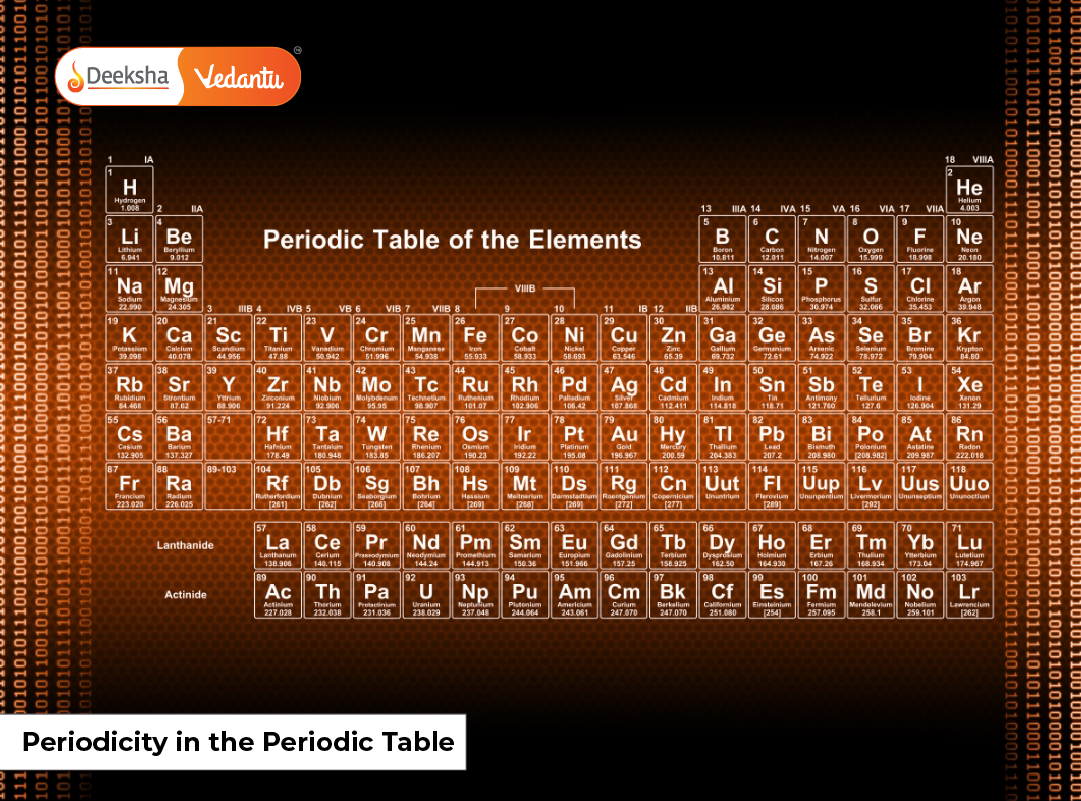



Get Social